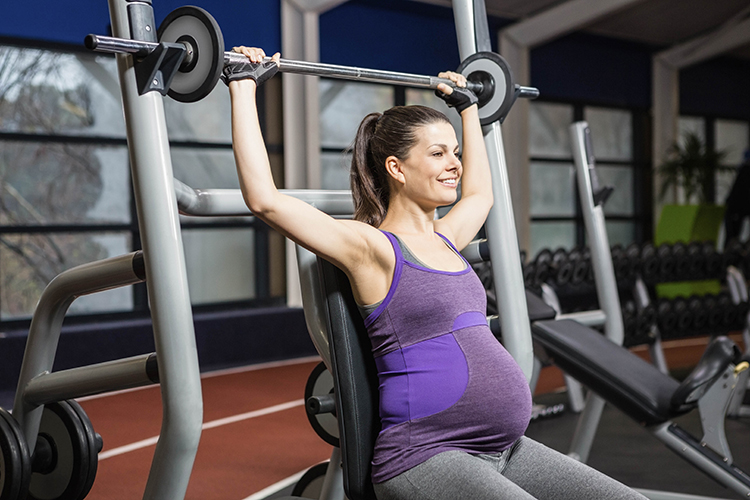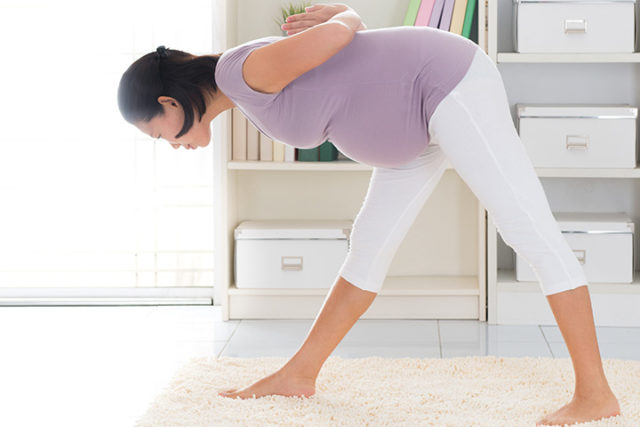Pregnancy is a rather taxing experience where you need to pay attention to various things including how much you exert yourself. Now, this doesn’t in any way mean that pregnancy disables from carrying out routine activities. It does not promote the idea that being sedentary is necessary, or good. Your physician will most likely advise you to keep your weight in check and keep yourself active by performing mild to moderate exercises every day. Routine exercise is recommended for a healthy and safe childbirth experience.
The problem lies in non-routine activities that are exhaustive and physically demanding. There are quite a few physically demanding activities that are best avoided during all stages of pregnancy keeping in mind the safety of your baby and your own. Some such activities you must avoid include:
Lifting heavy objects

Avoid all kinds of the heavy lifting in general. Specifically, at no stages of your pregnancy should you be lifting heavy objects from the floor level or from anywhere below your mid-shin region. Lifting objects over your head are equally unadvised. During pregnancy, your hormones are set to work to do what is necessary to make space to accommodate the growing baby. This means that your ligaments and joints are not as sturdy as they usually are.
Bending for prolonged periods

Bending at the waist, for long periods must be avoided for whatever reason. Bending backwards and forwards is not advisable and if you work in jobs that require you to bend and lift objects, this might result in undesirable effects on your pregnancy during any stage. Bending once in a while won’t do you any harm but when it is frequent, and daily, you increase the risk of adversities.
Standing for long hours

Standing for long hours during pregnancy is not safe. It can lead to multiple harmful effects such as injuries, increased incidences of premature birth, miscarriages and can also affect your baby’s growth. Healthcare or construction workers, flight attendants, law enforcement officers etc are prone to standing for long hours as part of their occupation.
Harmful Effects of Standing for Long Hours During Pregnancy
It can affect the growth of the baby: Studies have shown that standing for prolonged durations can directly affect the growth of your baby and limit it noticeably. It was noticed that babies of women who spent a long time on their feet during pregnancy had a smaller head (about 1cm smaller) than other babies. This is a recognized indicator of a slower growth rate. Along with the smaller head, the babies also had a lower birth weight.
Increased risk of preterm delivery: It is always the best-case scenario when a pregnancy is carried to term as preterm deliveries are associated with the obvious risk of your baby being underdeveloped, especially their lungs. It takes time for the surfactant in their lungs to develop (the stuff that lets them breathe). Premature babies require plenty of special attention and there is a high risk of neonatal death.
Can lead to higher blood pressure: Standing for long can cause your blood pressure levels to rise, which can pose a huge threat to safe delivery. Your doctor will try to get your blood pressure back to normal especially when you are nearing the delivery date and might even suggest medically intervening to postpone the delivery. This is because higher blood pressure leads to a complication known as eclampsia that results in seizures.
Interestingly enough, you may also experience an episode of low blood pressure which is equally bad and might lead to your fainting.
Body pains you could have avoided: Even when you are not pregnant standing for long can tire you out. When you are already vulnerable to lower back pains and leg aches, standing for long hours will just aggravate them. Also, it will cause your feet to swell up making it difficult for you to stand at all.
What you must remember is that pregnancy is not a disease and it is not as scary as you are usually led to believe. Unless your doctor specifically tells you to avoid doing certain things, you can carry about with your routine activities by exerting the right levels of precaution.

